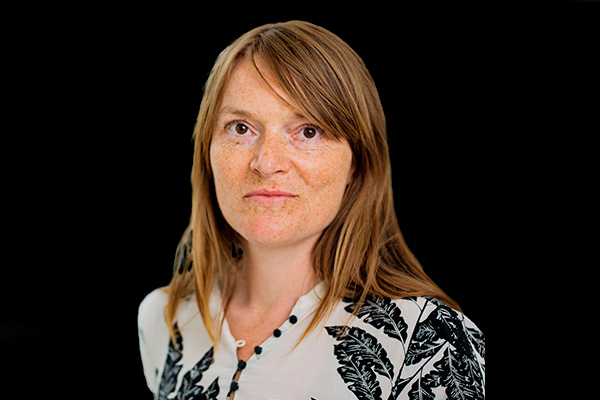Line Hillersdal
Research leader

Project title
Care Across Generations: Intergenerational Solidarity in a Time of Demographic Change (INTERGEN)
What is your project about?
The project is about what intergenerational care and solidarity is and means in a Danish welfare context, where care tasks are often solved in complex intersections between state, family and civil society. Several point out that the welfare state is currently under such massive pressure that relatives, neighbours and civil society must prepare to play a more active role in caring for the elderly in particular. And this raises questions about the sustainability of the current social contract between the generations and how it is renegotiated in concrete everyday practices. Specifically, through four sub-projects, the project will explore how intergenerational care unfolds in the family with children, in senior life, in civil society and in the care sector. Through ethnographic fieldwork, the project will explore how family members, volunteers and welfare professionals experience and deal with everyday care crises and try to create good intergenerational care arrangements. By pursuing these questions, the project will qualify what solidarity is in practice and thus develop an empirically grounded understanding of intergenerational solidarity.
How did you become interested in your particular field of research?
My field of research is health anthropology, and I have long been interested in the welfare state's provision of health, care and welfare and how political, economic and scientific interests and priorities help shape the concrete health and welfare services offered to citizens. I have pursued this interest through ethnographic studies of the production of biomedical knowledge on obesity, the relationship between public and private actors in experimental cancer treatment, forms of organization and digitalization in elderly care, and most recently the commercialization of welfare technologies in Denmark and South Korea. With the Sapere Aude grant, I now have the opportunity to pursue and develop my interests through a project that focuses on the current care crisis and how intergenerational relations constitute a resource in the organization of care in the welfare state.
What are the scientific challenges and perspectives in your project?
The background to the project is the demographic development and the large shortage of staff in the welfare sector, which means that the Danish welfare society is facing what some describe as a care crisis. Currently, the question of care for children, young people, the elderly and the sick is widely discussed. But how does this care crisis take shape from an everyday perspective? What moral dilemmas might arise when different generations meet and commit to different care arrangements? And how do intergenerational relationships bear up? These are some of the questions I will explore. By pursuing these questions, the project is able to qualify what intergenerational care and solidarity are in practice, as well as what makes people bear burdens on behalf of others. The contribution of the project will be to develop an empirically grounded understanding of intergenerational solidarity and care as it unfolds across family, civil society and welfare institutions.
What is your estimate of the impact, which your project may have to society in the long term?
The project's questions can help inform future discussions and policies on the social sustainability of modern welfare societies by providing new insights into how intergenerational relations are formed, changed, and maintained in welfare state contexts. Moreover, the project is anchored at the University College of Copenhagen, which makes it possible to apply the project's insights in development collaborations with municipalities regarding the organization of care and in the education of nurses and pedagogues.
Which impact do you expect the Sapere Aude programme will have on your career as a researcher?
It is a great honour to be part of the Sapere Aude programme. The grant will allow me to continue, qualify and further develop my research on the elderly, care and the organisation and development of the welfare society. This grant comes at a time when I have embarked on an new position in an interdisciplinary environment with close links to practice. The timing allows me to create a dynamic and research environment around a highly topical societal challenge and rethink my research field in an innovative and new way, as well as strengthen my international network and collaboration.
Background and personal life
I live with my family in the countryside less than an hour from Copenhagen. I enjoy being close to nature but also feeling the contrast between city and countryside when I commute into the city. When I am not working I spend time relaxing in the garden without too many plans, but I also find the time to sing in a choir and try out rowing in the local rowing club.
View all research leaders here
Research institution
University College Copenhagen
Research field
Anthropology
City of your current residence
Holbæk
High school
Høng
